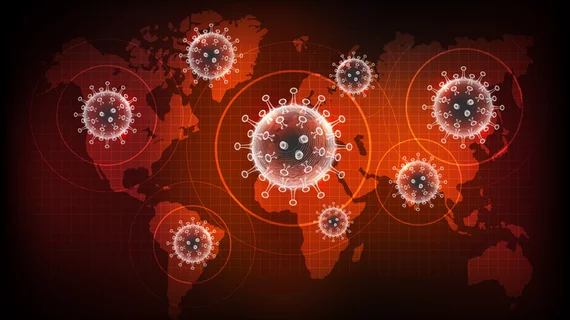WHO clarifies confusing comments about asymptomatic spread of COVID-19
The World Health Organization has had to clarify statements made about the spread of COVID-19 through asymptomatic people.
During a live session via social media, a WHO official noted that asymptomatic spread of the virus is “rare,” a message that contradicts information from the CDC that 35% of all COVID-19 infections are asymptomatic and that 40% of transmission occurs before people feel symptoms.
WHO clarified the remarks the following day, again during a live session, to state that asymptomatic spread of the virus is still unknown.
“The majority of transmission that we know about is that people who have symptoms transmit the virus to other people through infectious droplets––but there are a subset of people who don't develop symptoms, and to truly understand how many people don't have symptoms, we don't actually have that answered yet,” said Maria Van Kerkhove, PhD, who heads WHO’s emerging diseases and zoonosis unit.
Further, the definition of asymptomatic related to COVID-19 is also changing, as some cases that were thought to be asymptomatic are cases of mild disease with other symptoms, Van Kerkhove said. Though there are also cases of true asymptomatic COVID-19.
Public health experts immediately jumped on the original comments about the rare spread through asymptomatic patients.
“There remains scientific uncertainty, but asymptomatic infection could be around 30% to 50% of cases,” Liam Smeeth, professor of clinical epidemiology at the London School of Hygiene and Tropical Medicine, said in a statement. “The best scientific studies to date suggest that up to half of cases became infected from asymptomatic or pre-symptomatic people.”

